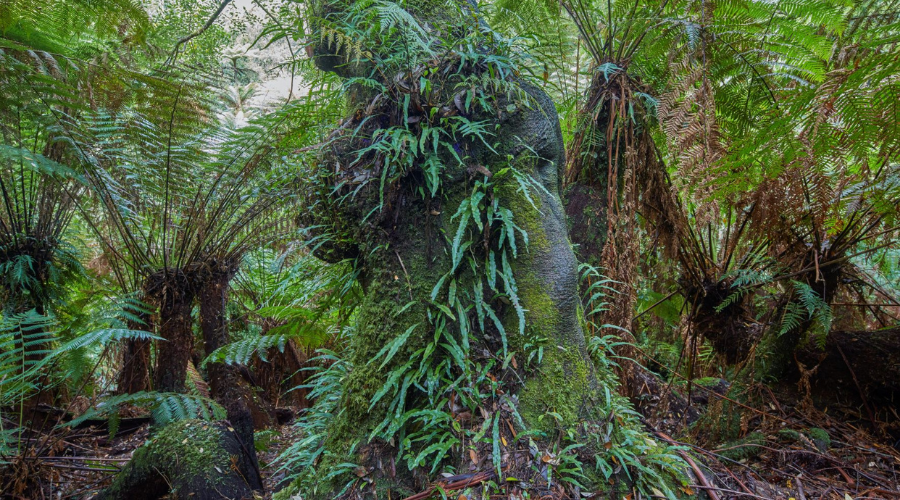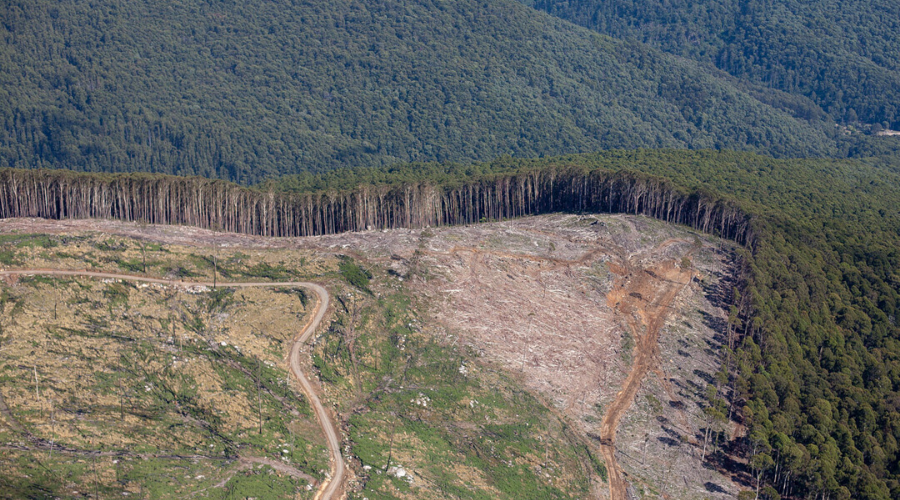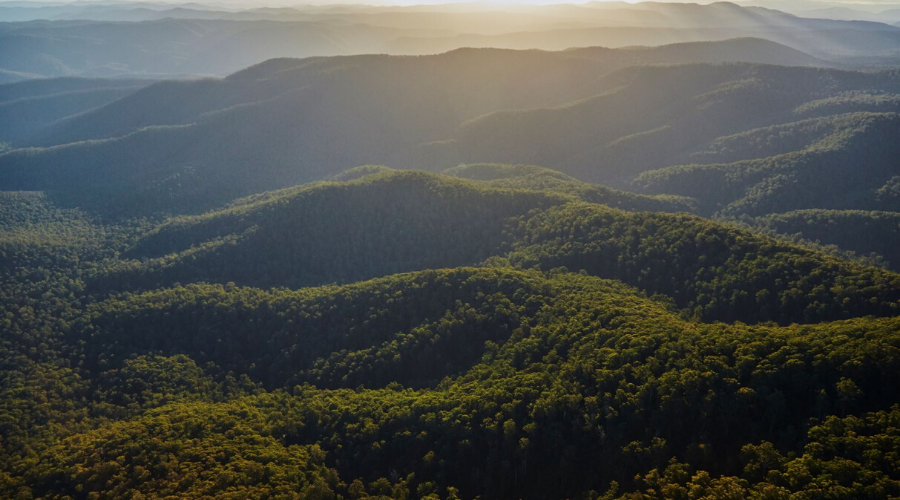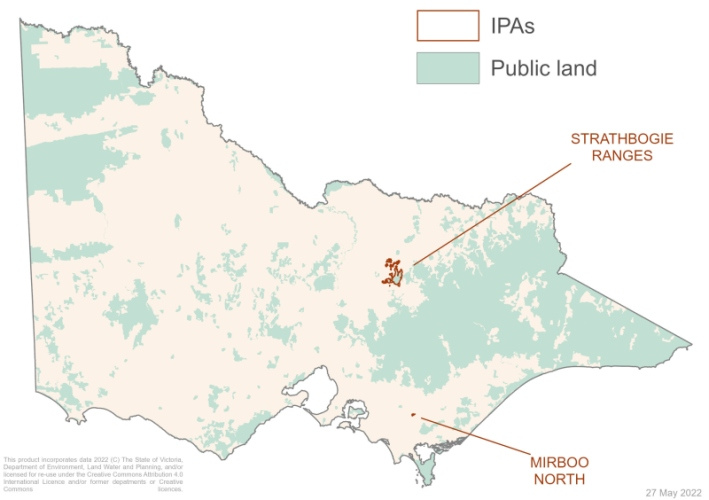
Victoria's tall forests

The Eminent Panel must recommend a secure future for the IPAs and recognise Traditional Owner Rights.

In November 2019, the Andrews government announced four Immediate Protection Areas (IPAs) in eastern Victorian forests, with cessation of logging a first step.
Two of these areas (Mirboo North and Strathbogie Ranges) are being assessed for long term protection and management arrangements—with recommendations to government expected mid-2022
We urge government to protect the IPAs from industrial logging for the long term, recognise Traditional Owner rights, interests and management on public land, including pathways for cooperative, joint and sole management where desired by Traditional Owners and enabled with appropriate capacity and support. (Main image top: Ben Baker)

In November 2019, the Andrews Government announced the transition of logging out of Victoria’s forests by 2030, measures relevant to old growth forests, and four ‘Immediate Protection Areas’ (IPAs) where logging would cease.
While the announcement was a welcome recognition of the unsustainability of the logging industry, and the need to transition – it was soon followed by the 2019/20 bushfires. The impact of the fires on forests, wildlife, businesses and community – on top of decades of forest mismanagement, controversy over logging in high conservation value areas and breaches to environmental laws – mean the Government needs to urgently bring forward the transition and associated support.
The IPA component of the announcement involved the establishment of four IPAs in the following locations
Mirboo North
Strathbogie Ranges
Central Highlands
East Gippsland

At this stage, the IPAs are simply a government commitment not to conduct logging in those areas.
A further step is required to secure any long-term protection for the forests, changes in tenure and management arrangements.
The Victorian government has directed the Victorian Environment Assessment Council (VEAC) to conduct assessments of the IPAs and develop recommendations, with Traditional Owners having a formal role in the process.
An Eminent Panel has also been appointed to conduct community consultation alongside VEAC, working with Traditional Owners who have membership on the Panel. The Panel will make recommendations to the government by mid 2022 for Mirboo North and Strathbogie Ranges IPAs, with assessments for the remaining two IPAs to begin later in the year.
Government would then decide protection, tenure and management arrangements for the forests.
Assessment and consultation over the Mirboo North and Strathbogie Ranges IPAs is nearing completion.
VEAC has undertaken scientific assessments of environmental, biodiversity and other values for Mirboo North and Strathbogie Ranges, while Gunaikurnai Land and Waters Aboriginal Corporation (GLaWAC) and Taungurung Land and Waters Council (TLaWC) have assessed Traditional Owner values, rights and interests for the Mirboo North and Strathbogie Ranges IPAs respectively.
The Eminent Panel has been meeting with stakeholders and local communities, with public consultation closing 27 May 2022. The Eminent Panel comprises Karen Cain (Chair), Melissa Wood (VEAC), Nicola Pero (Food & Fibre Gippsland), Lisa Hocking (GLaWAC) and Mike Nurse (TLaWC).
The Panel will make recommendations to government by mid-2022 on
opportunities for management of public land by Traditional Owners, and managing cultural values
environmental and habitat protection
providing for the wide range of community uses
Right now, the forests of Mirboo North and Strathbogie Ranges are under a temporary reprieve from clearfell logging.
Recommendations made by the Panel, and subsequent Victorian government decision making will have important implications for these forests, long term protection from logging and the recognition of Traditional Owner rights and interests - as well as wider implications for forests and other IPAs not yet assessed.

The Wilderness Society welcomes the establishment of IPAs as an initial step in addressing logging in some important areas, while noting the ongoing destruction of high conservation value forests elsewhere in eastern Victoria and the need to bring forward the 2030 industry transition.
The Mirboo North and Strathbogie Ranges forests are highly significant in their own right – including as relatively intact forests in extensively cleared regions – and deserve long-term secure protection from logging.
For many years, local groups Preserve our Forests Steering Committee (PoFSC) and Save Our Strathbogie Forests (SOSF) in dialogue with relevant Traditional Owners, have championed a more positive future for these forests and these efforts should be recognised and supported.
We welcome increased Traditional Owner involvement in assessment and decision making over the future of these forests, including that already undertaken through GLaWAC and TLaWC having a formal role in VEAC and the Eminent Panel.
While the need for reform is urgent, we note the short timelines for public and Traditional Owner consultation with some concern.
Given the short timelines, the Wilderness Society has not completed discussions with other stakeholders. In that context, we make the following high level interim recommendations to the Eminent Panel, and government:
Support avenues for increased recognition of Traditional Owner rights, interests and management on public land. This includes pathways for cooperative, joint and sole management, whether under the Parks Act or proposed Land Act, where that is desired by Traditional Owners and enabled with appropriate capacity and support.
Support permanent protection of IPA areas from commercial logging operations. There are concerns over the creation of Forest Park areas, given the intensity of logging occurring under that tenure elsewhere.
Urge the rapid implementation of tenure change or other mechanisms to secure these IPA forests against commercial logging operations, by the end of 2022.